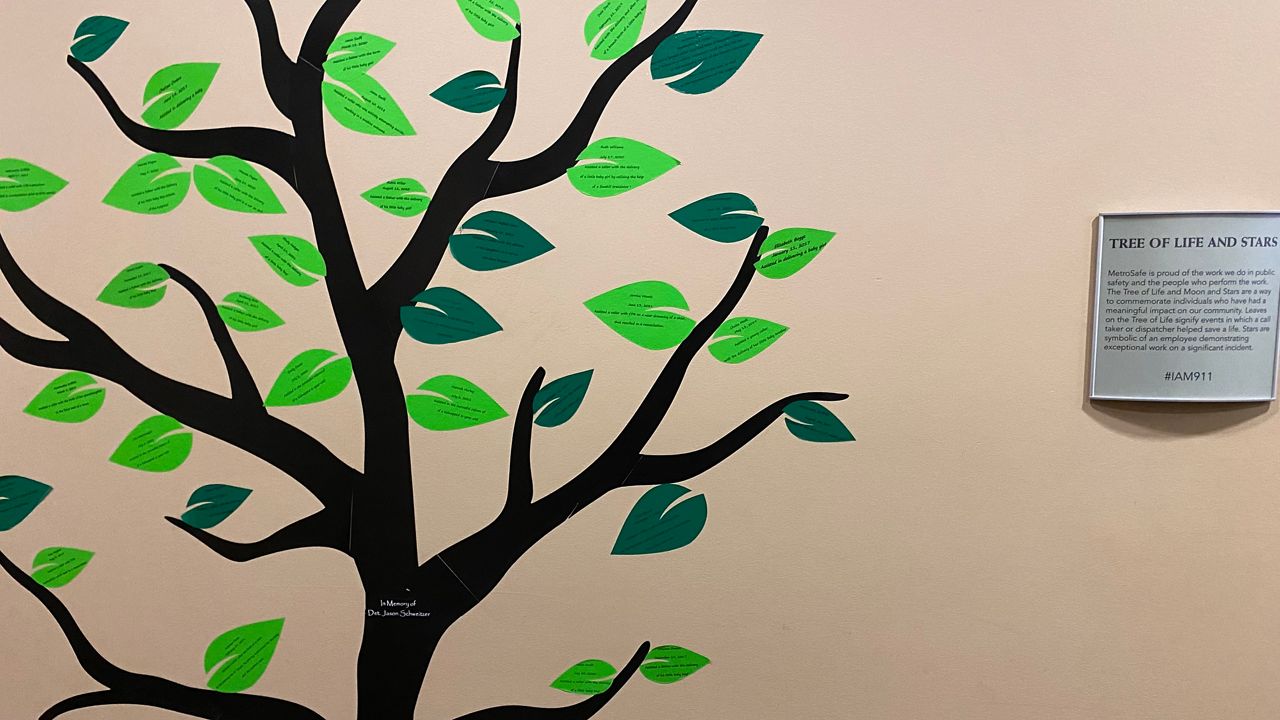LOUISVILLE, Ky. — In an emergency that requires the police, fire or EMS, you call 911, but the ones answering the calls are responsible for getting the right agencies to the right place as quickly as they can.
What You Need To Know
- Dispatchers and call takers at MetroSafe go through a 250-hour training academy
- Call takers are responsible for gathering all the information before transferring to dispatchers, who make the call to the agencies
- Dispatchers rotate shifts between fire, EMS and police, so they understand all three agencies
- MetroSafe is currently hiring
Louisville/Jefferson County Metro EMA launched MetroSafe on Sept. 12, 2005. MetroSafe is a joint initiative between the 911 dispatch system, Louisville Metro Police Department, Louisville Fire and Rescue, local government radio and Louisville Metro Emergency Medical Services.

Nick Tinnell, a communication specialist I, or better known as a call taker, decided to start this position because he enjoys talking to people and hopes that with each phone call, he can help someone in some way.
“Everyday I walk in and I make a difference in someone's life. Even on the tough days, even on the days when it doesn't seem like I did anything, I can walk out of here with my head held high and know there was at least one person whose life was hopefully bettered by my involvement,” Tinnell said.
Whether it be a call regarding a shooting or an illegal parking violation, dispatchers and call takers are tasked with one of the most important jobs, and they rely on one another for information to complete the call process.
Dispatchers rotate shifts between fire, EMS and police, so they understand all three agencies.
“They take all the information and then give it to us and then they're onto the next call. We have to kind of keep tabs on everybody. It's like playing multiple chess matches at the same time, using the pieces you have and trying to get the right people to the right places in the quickest amount of time,” Corey Stein, communication specialist II, said.
The two positions at MetroSafe go through a 250-hour training academy and then move onto on-the-job training before being released on their own. According to Travis Brown, a training specialist for MetroSafe for call takers, it takes about six to eight weeks and dispatchers 10 to 12 months before transitioning on their own.
“Your heart rate goes from normal to a thousand beats a minute just like that. You have to remember that you're the calm voice. They have enough chaos going around them out on the streets that they are relying on you to be the calm one. So if you start acting out of control, things are going to spiral,” Brown said.
“That is such a high stress situation, that when it happens, the whole center feels it. I know when Detective [Deidre] Mengedoht died, we knew immediately in the center what was going on and everybody jumped in to help everyone else,” Tinnell said.
Brown, a training specialist for 3 years and who formerly served as a dispatcher for 14 years, tells his trainees to focus on the positives.
“Everyone starts this job because they want to help people. They don't want to think about the people who died on the radio or died while they were on the phone call, so I try and get them to think about the life you helped save or think about the child that you got to hear cry for the first time, that's the stuff you want to focus on,” Brown said.
MetroSafe in Louisville is currently looking for dispatchers and call takers.
Editor's note: A previous version of this story had the incorrect video story attached. The correct story from Erin Wilson has been added. We apologize for the inconvenience.



